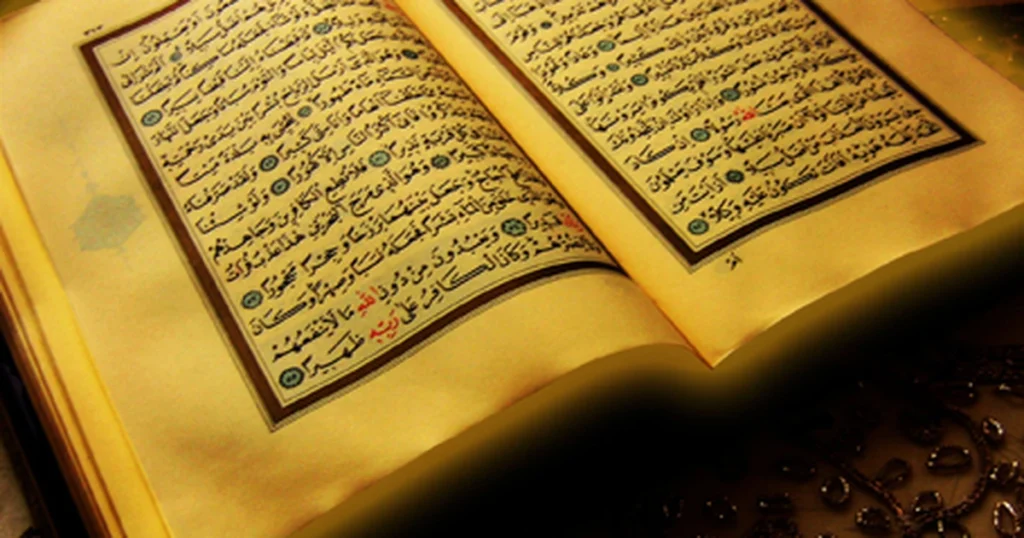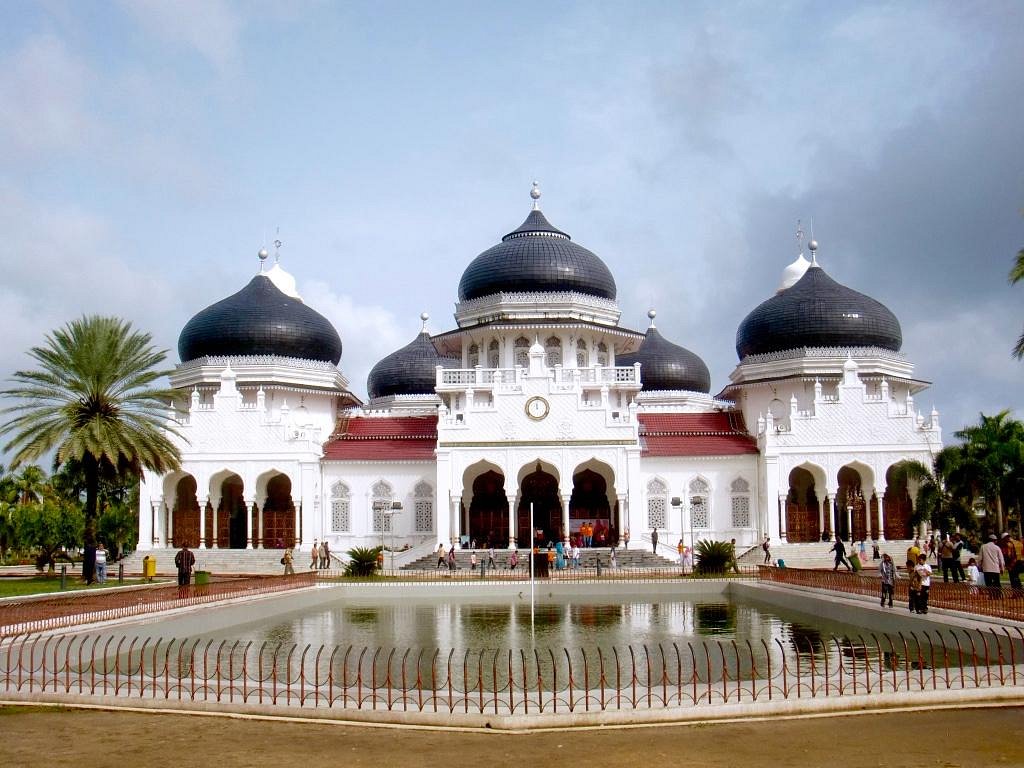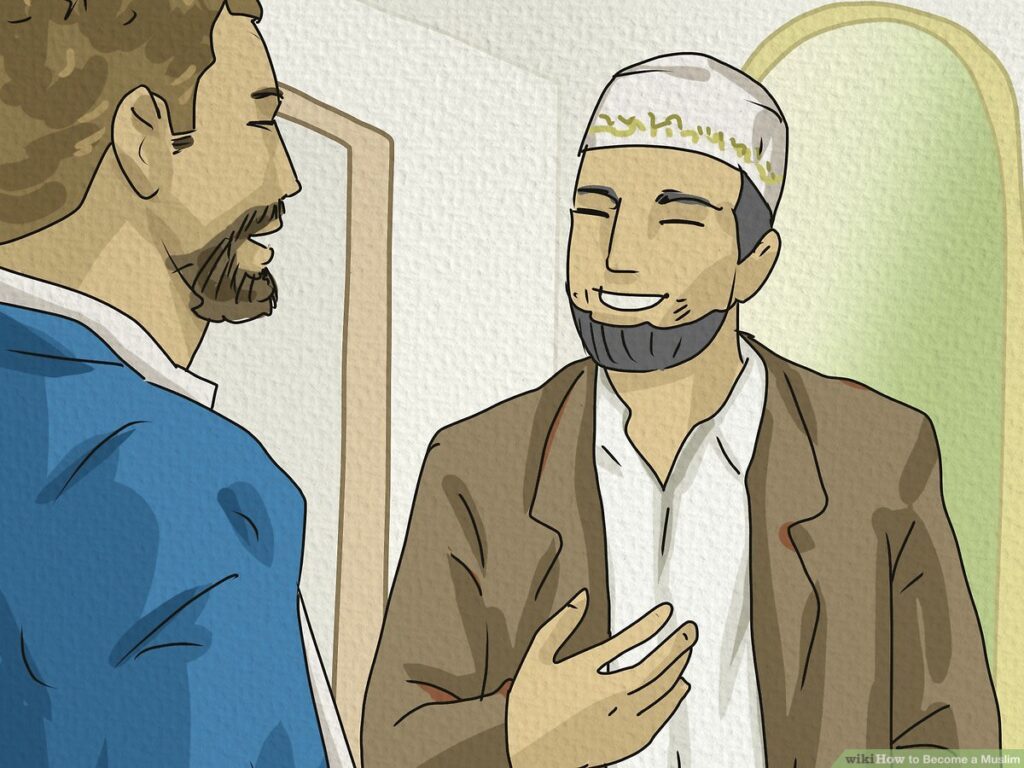WHAT IS A MUSLIM? DEFINITION, ORIGINS, VALUES, AND INFLUENCE OF THE MUSLIM COMMUNITY
Estimated reading time: 10 minutes
Key points
- Muslim is a person who believes in Islam, submitting to the will of Allah.
- Islam originated in the 7th century, founded by the prophet Muhammad.
- The global Muslim community is diverse in culture and ethnicity, and is not synonymous with Arabs.
- Muslims make significant contributions in many fields, from science to art.
- I. General Introduction: Defining **What a Muslim is**
- II. What is a Muslim? Decoding the Term
- III. Differentiating Muslim from Related Concepts
- IV. Identifying Characteristics of a Muslim
- V. The Origin and Deep Meaning of Muslim
- VI. Core Values and Beliefs of a Muslim
- VII. Cultural Diversity in the Global Muslim Community
- VIII. Global Influence and Contributions of Muslims
- IX. Correcting Common Misconceptions about Muslims
- X. Conclusion and Recommendations for Further Learning about Muslims
I. General Introduction: Defining **What a Muslim is**
When it comes to Islam, one of the most searched keywords is “What is a Muslim?”. The term Muslim is not just a noun for those who follow Islam; it also holds a deeper meaning of submission and inner peace. To correctly understand one of the world’s largest faith communities, grasping the concept of what a Muslim is is essential.
In a world of diverse cultures and religions, accurately understanding terms like Muslim and Islam helps us avoid misconceptions and recognize their significant influence in social, religious, and cultural spheres. From definition to origin, characteristics, values, influence, and even common misunderstandings, this article will provide you with a comprehensive and objective view of a Muslim.
II. What is a Muslim? Decoding the Term
So, what exactly is a Muslim? The root Arabic word “مسلم” (Muslim) refers to an individual who fully believes in and practices the teachings of Islam, one who has “submitted” or “surrendered” to the will of the one God, called Allah. This concept is found in many academic and religious sources.
According to the Sufi philosopher Ibn Arabi, a Muslim is “one who dedicates their worship to God… loyal only to God”. This emphasizes a deep commitment in faith and absolute adherence to the teachings in the Qur’an, which was revealed through the prophet Muhammad. Becoming a Muslim is not just a title but a spiritual journey of obedience and the search for peace. It also helps to clarify the distinction between “Muslim” (the believer) and “Islam” (the name of the religion).

III. Differentiating Muslim from Related Concepts
To get a clearer picture, we need to delve into the linguistic roots and distinguish Muslim from related terms. The word “Muslim” (مسلم) originates from the Arabic verb “aslama,” which means “to submit” or “to surrender” to the will of God (Allah). Interestingly, this word is also related to “salaam,” which means “peace.” This clearly reflects the spirit of Islam, where submission to God brings inner peace and social harmony.
While the term “Muslim” is used for a follower of Islam, there are other related concepts that need to be clarified:
| Term | Definition |
|---|---|
| Muslim | An individual who believes in and practices the teachings of Islam; one who has voluntarily “submitted” to the will of Allah. |
| Islam | The name of the religion founded by the prophet Muhammad in the 7th century, based on revelations from Allah. This is the name of the doctrine and belief system itself. |
| Người Hồi giáo | The common term in Vietnamese for a Muslim, meaning a follower of Islam. |
| Islamic | An adjective used to describe things related to Islam (e.g., Islamic art, Islamic architecture). |
| Arab | An ethnic group living mainly in the Middle East and North Africa, speaking Arabic. It is important to remember that not all Arabs are Muslims, and conversely, the Muslim community is much larger, encompassing countless ethnic groups worldwide (according to Wikipedia). This is a common misconception that we will clarify further in later sections. |
IV. Identifying Characteristics of a Muslim
Although there is no single standard of appearance or dress for all Muslims worldwide, as it depends on local culture and traditions, there are core religious characteristics and practices that help us identify someone as a Muslim.
First and foremost is the religious commitment through the Shahada, the declaration of faith. This is the affirmation that “There is no God but Allah, and Muhammad is His Messenger”. This declaration is the first step to becoming a Muslim.
Next is the practice of the main duties, known as the Five Pillars of Islam:
- Shahada (Declaration of Faith): The declaration of belief in one God (Allah) and that Muhammad is His messenger.
- Salat (Prayer): Performing prayers five times a day at specific times, facing the Kaaba in Mecca (according to Phamhongphuoc.net).
- Sawm (Fasting): The practice of fasting from dawn to dusk during the month of Ramadan, the ninth month of the Islamic calendar (according to Gotquestions.org).
- Zakat (Charity): Giving a certain portion of one’s wealth to the poor and needy, as a form of purifying wealth and showing gratitude.
- Hajj (Pilgrimage): Making the pilgrimage to Mecca (Saudi Arabia) at least once in a lifetime, if physically and financially able.
In addition, Muslims also adhere to strict dietary rules, known as Halal, which refers to food and actions permitted by Islamic law. For example, avoiding pork and alcohol is an important part of this lifestyle.
See also: What is Halal?
V. The Origin and Deep Meaning of Muslim
Islam, the religion that Muslims follow, emerged in the early 7th century on the Arabian Peninsula, under the guidance of the prophet Muhammad. According to sources like TOTHA and Gotquestions.org, Muhammad received revelations from Allah through the Angel Gabriel, which formed the Qur’an – the holy book of Islam. From then on, the term “Muslim” has been used to describe all who voluntarily accept the teachings of Islam and submit to the will of Allah.
The formation of Islam in the year 610 opened a new era, and over the past 1,400 years, the Muslim community has grown strong, becoming the second-largest religion globally, with over 2 billion followers across all continents.
The profound meaning of being a Muslim goes beyond adhering to rules; it is a state of mind. It is the acceptance of a path of absolute obedience, seeking inner peace and tranquility through faith in one God. Muslims believe that submission to Allah brings not only peace to the soul but also eternal happiness. They embody the ideals of compassion, kindness, justice, and a sense of community service, as mentioned above.
VI. Core Values and Beliefs of a Muslim
The life of a Muslim is built on a solid system of beliefs and values. The core beliefs (Six Articles of Faith) include:
- Belief in Allah: The one and only God, who has no partners or children.
- Belief in Angels: Invisible beings created by Allah who carry out His commands.
- Belief in Holy Books: Including the Qur’an, the Torah (Old Testament), the Gospel (New Testament) which were previously revealed, and the scrolls of Abraham.
- Belief in the Messengers of Allah: From Adam, Noah, Abraham, Moses, Jesus, to Muhammad as the final messenger.
- Belief in the Day of Judgment: The day when all people will be judged for their actions.
- Belief in Divine Decree (Qadar): Everything is within Allah’s plan and will.
Additionally, the core values that Muslims strive for in daily life are integrity, tolerance, maintaining peace, and helping the less fortunate. These values are not just words but are demonstrated through concrete actions, especially through the practice of the Five Pillars of Islam as mentioned. Major holidays such as Eid al-Fitr (the end of Ramadan) and Eid al-Adha (the Festival of Sacrifice) are also important occasions to strengthen the community and express gratitude.

VII. Cultural Diversity in the Global Muslim Community
One of the most interesting things about discovering Muslims is their ethnic and cultural diversity. I once had the opportunity to visit Indonesia, the country with the world’s largest Muslim population, and realized that the customs and traditions here are completely different from what I saw in the Middle East or North Africa. This reinforces an important truth: Muslims are not a separate ethnicity or race, but a global faith community.
Muslims are present on every continent, from the Middle East, North Africa, and West Africa to Southeast Asia (like Indonesia, Malaysia), South Asia (Pakistan, Bangladesh, India), Europe (like Bosnia, Albania, France, Germany), and the Americas. This widespread distribution results in a colorful tapestry of cultures, languages, and traditions.
Therefore, equating Muslims with Arabs is a major misconception. Although Islam originated on the Arabian Peninsula and the Qur’an is written in Arabic, the majority of Muslims in the world are not Arabs. This clearly demonstrates the openness and ability of Islam to integrate into countless different cultures, enriching the identity of the global Muslim community.

VIII. Global Influence and Contributions of Muslims
With over 25% of the global population being Muslim (according to Wikipedia), they form a huge social and cultural force, present and playing an important role in all areas of life. From political leaders, scientists, and artists to ordinary workers, Muslims are shaping society in many different ways.
History has also proven the undeniable role and contributions of Muslims. During the Islamic Golden Age (from the 8th to the 13th century), Muslim scholars made remarkable breakthroughs in science, mathematics, medicine, philosophy, astronomy, and art. They preserved and developed ancient Greek knowledge while also creating their own innovations, laying the foundation for many inventions and discoveries we benefit from today. For example, the concept of zero, algebra, and many modern medical techniques originated from this period.
Today, Muslims continue to contribute to the world’s development, not only in the religious sphere but also in economics, politics, art, and science, creating a multifaceted and vibrant picture.
IX. Correcting Common Misconceptions about Muslims
As someone who always strives to build cultural bridges, I have noticed some common misconceptions about Muslims that we need to correct to promote understanding.
- Equating Muslims with Arabs: As explained, this is a major mistake. Muslims come from all races and countries in the world. Arabs make up only a small fraction of the global Muslim community.
- Thinking Muslims are extremists or violent: This is completely untrue. The vast majority of Muslims around the world reject extremist and violent acts, emphasizing the values of peace, compassion, and justice. Acts of terrorism and violence committed by extremist groups do not represent the entire Muslim community or the teachings of Islam. The Qur’an and the Sunnah (the teachings of Prophet Muhammad) call for peace, tolerance, and justice.
- The idea of ethnic and cultural homogeneity: Contrary to what some people think, the Muslim community is incredibly diverse in culture, language, and customs. Each region and country has its own distinct traditions, creating a rich tapestry of Islamic life.
The reality is that Muslims integrate into the societies where they live and contribute positively to the development of human civilization. I have witnessed many Muslim communities living in harmony and being an integral part of the diverse cultural landscape in many countries.
X. Conclusion and Recommendations for Further Learning about Muslims
Through this article, I hope you have gained a clearer and deeper understanding of the question, “What is a Muslim?“. In summary, a Muslim is a person who believes in and practices the teachings of Islam, submits to the will of Allah, and strives to live by the Five Pillars of Islam. They are individuals who aim for peace, compassion, justice, and service to society.
The Muslim community is not only large in number but also incredibly diverse in ethnicity and culture, with a profound influence on human history and civilization.
To understand Islam and the Muslim community more deeply, I encourage you to continue learning from reputable sources. You can read translated versions of the Qur’an, research books, and monographs on Islamic history and culture from major religious libraries. If you have specific questions, do not hesitate to ask experts or contact official religious organizations to get the most objective and accurate perspective.
Knowledge is power, and understanding different cultures will open new doors in your soul. See you again on the next journeys of discovery with Nuhaira!
See also:
What is Zakat? A Comprehensive Exploration of the Financial Pillar of Islam

